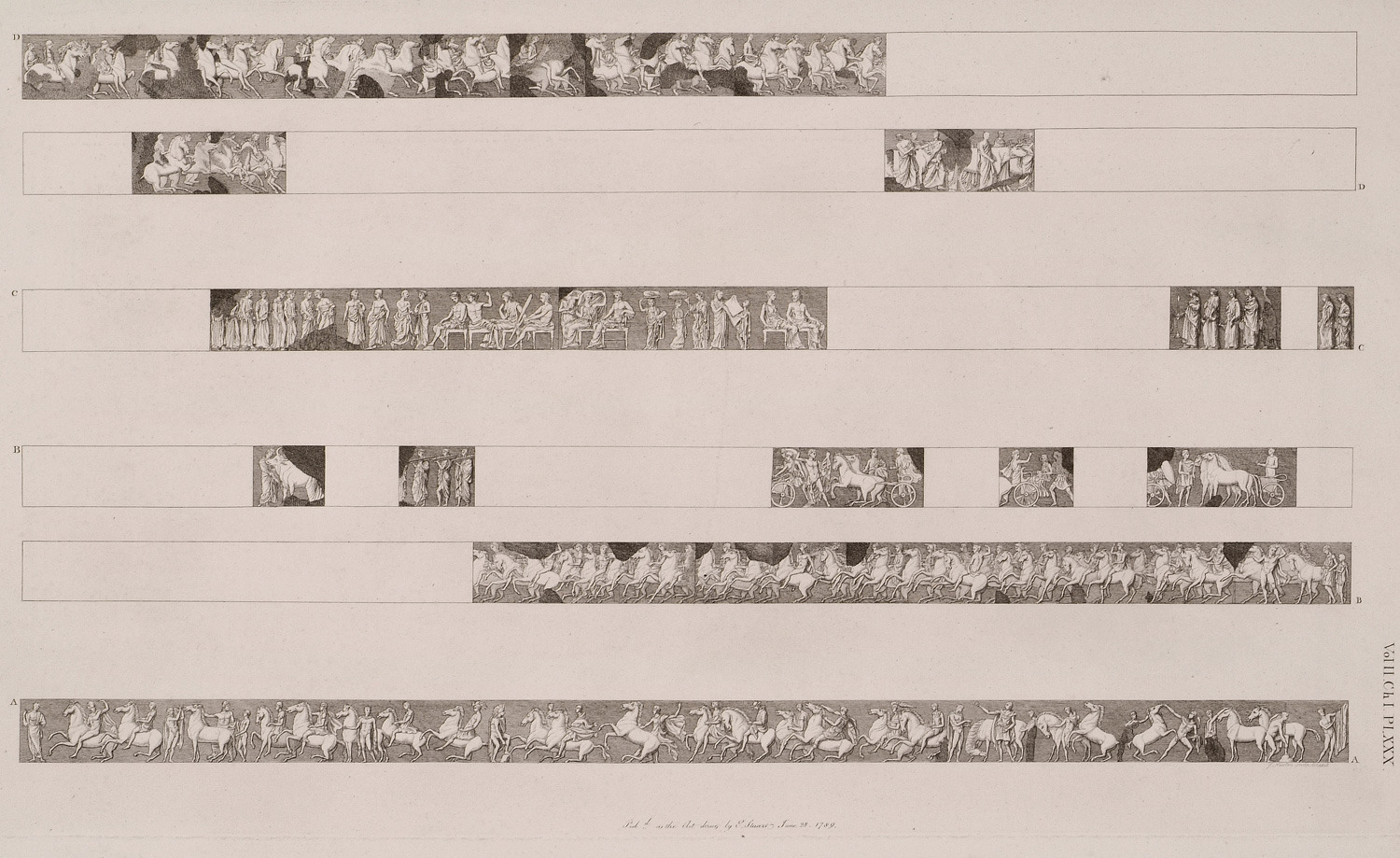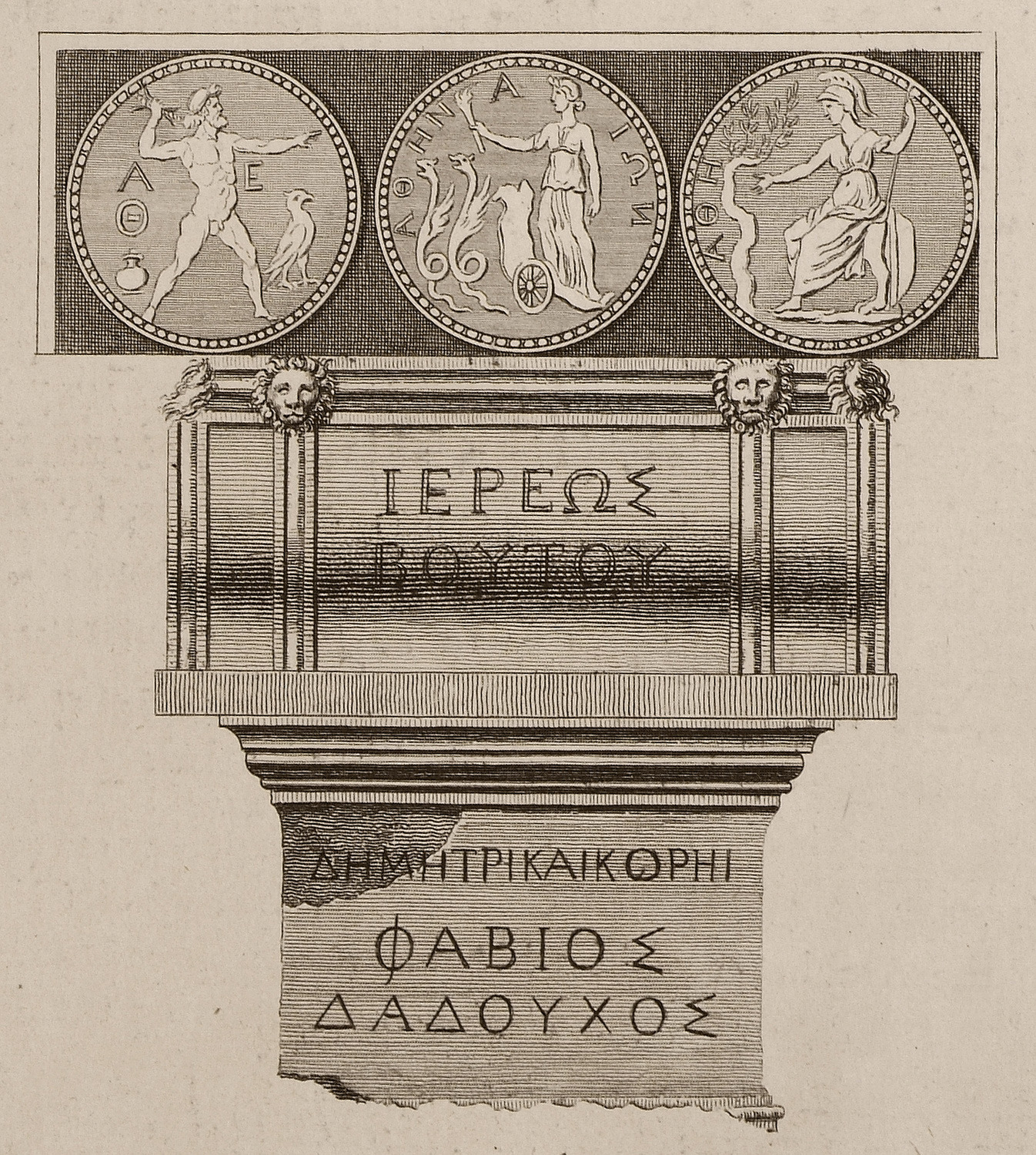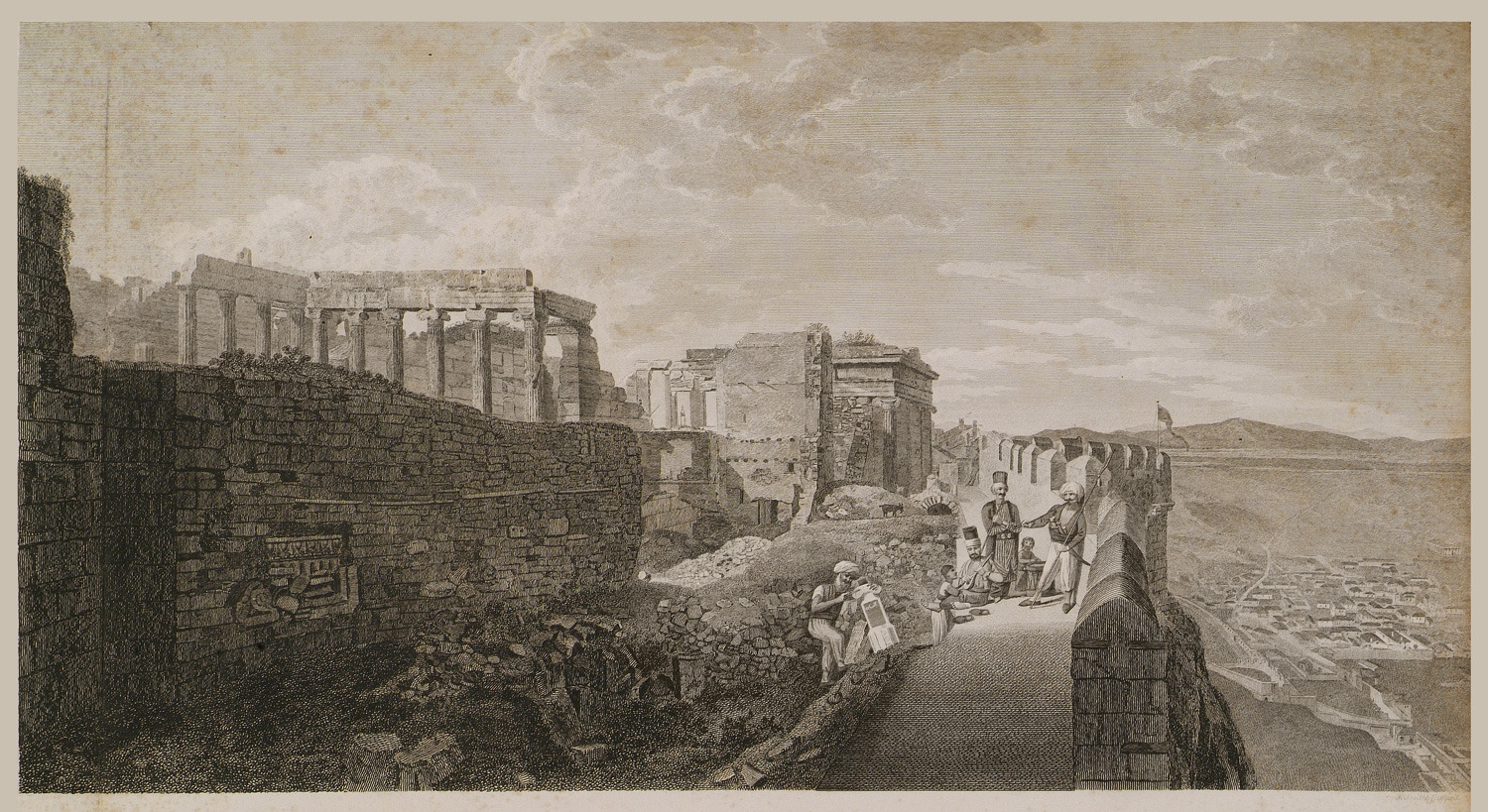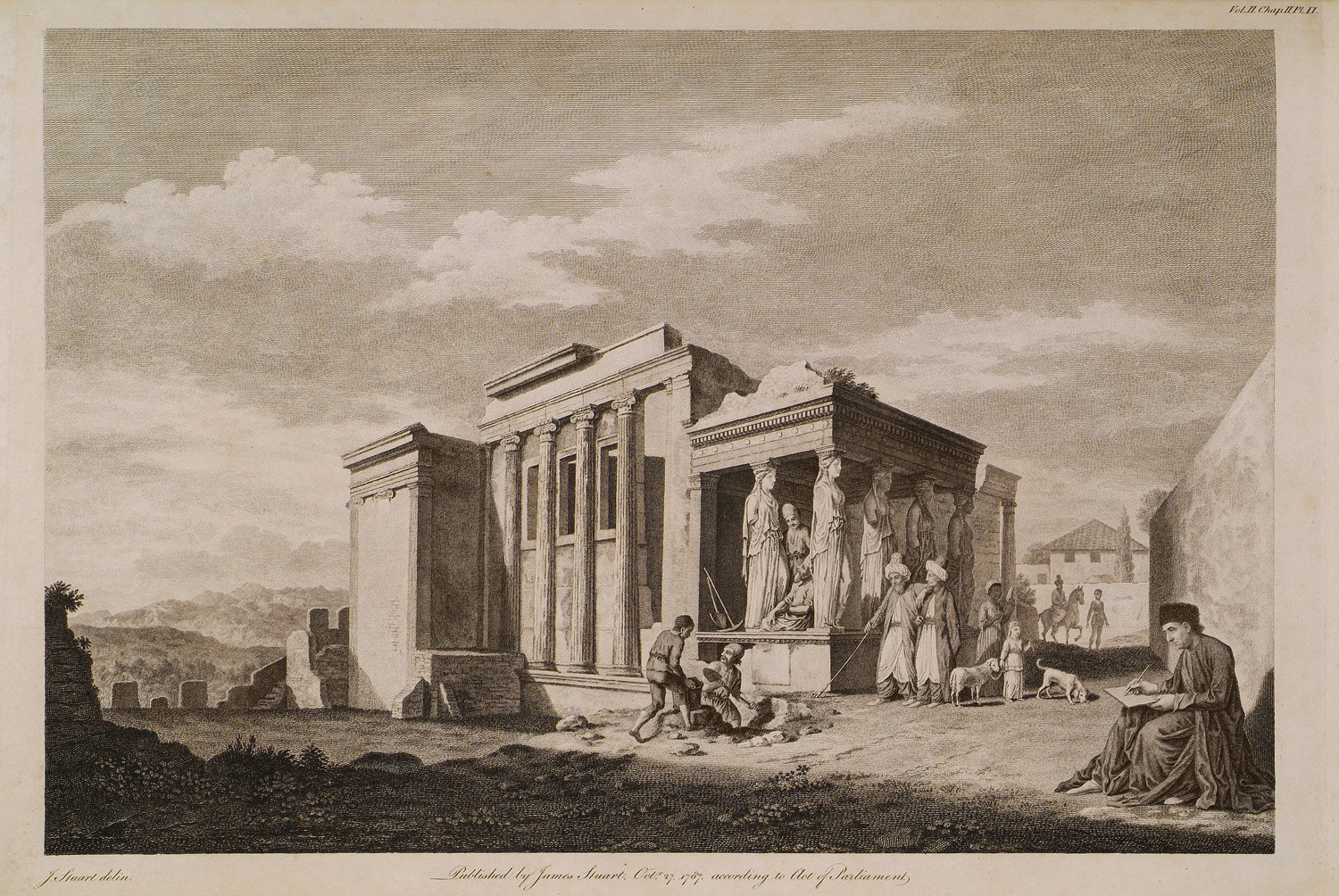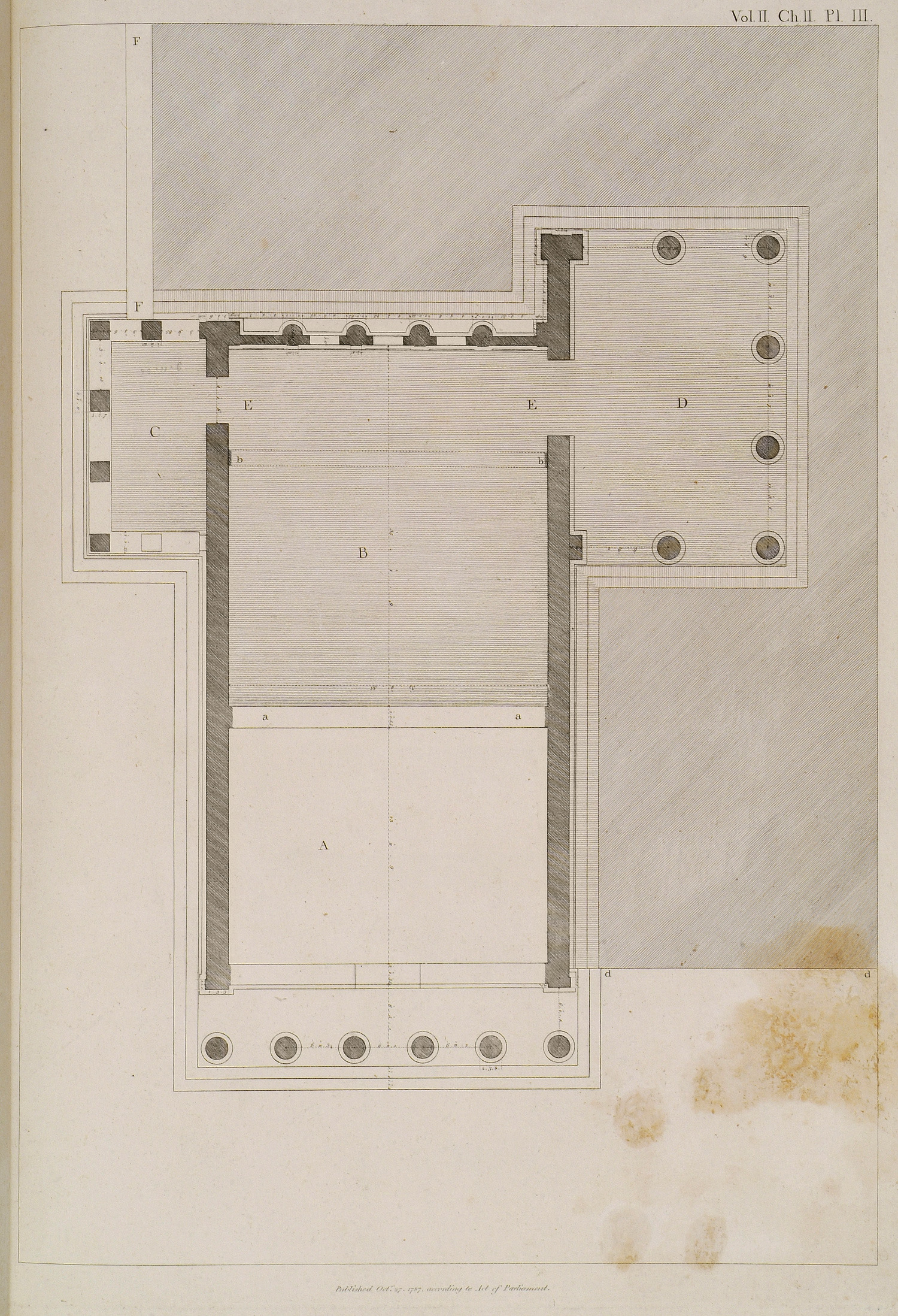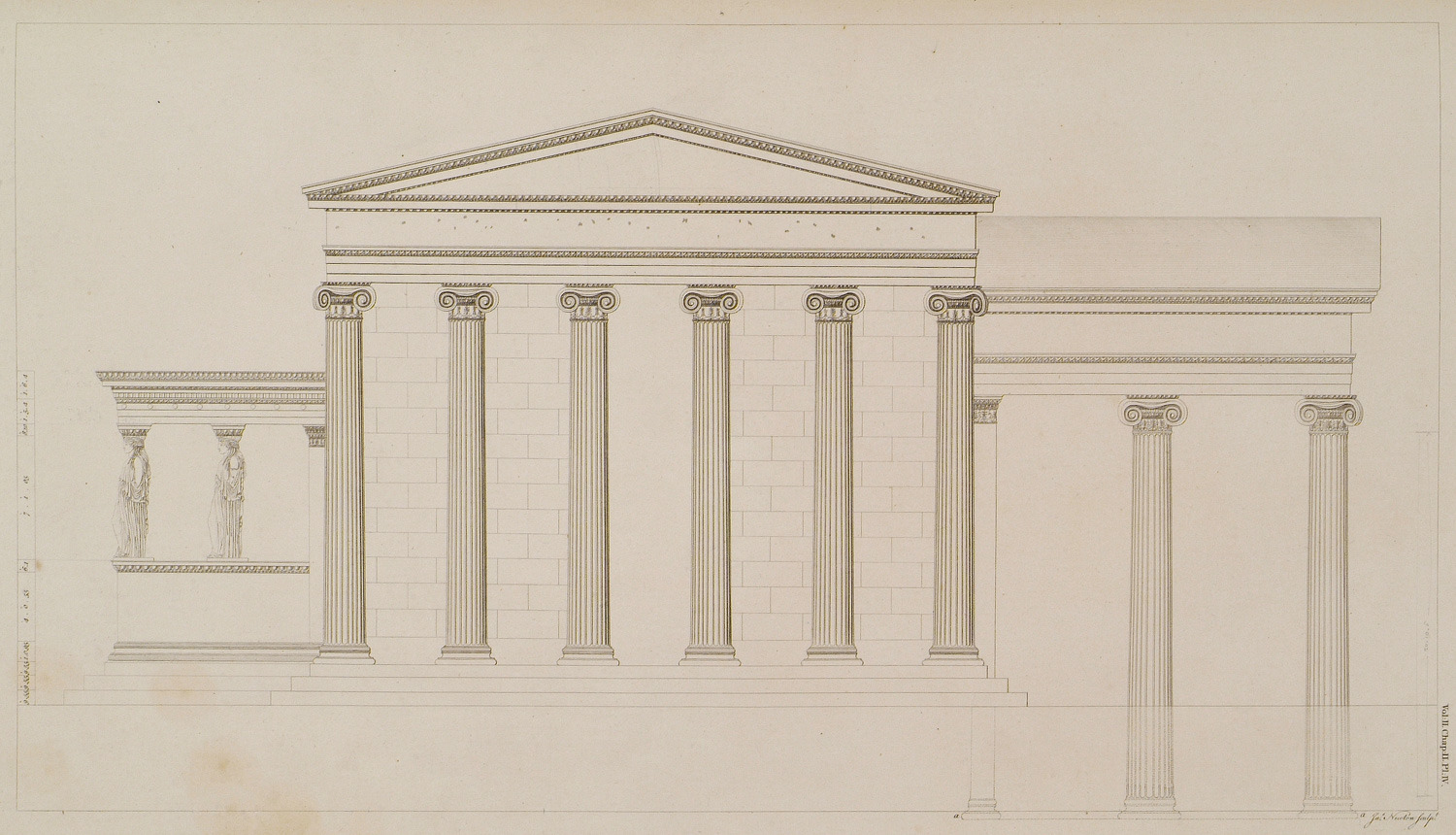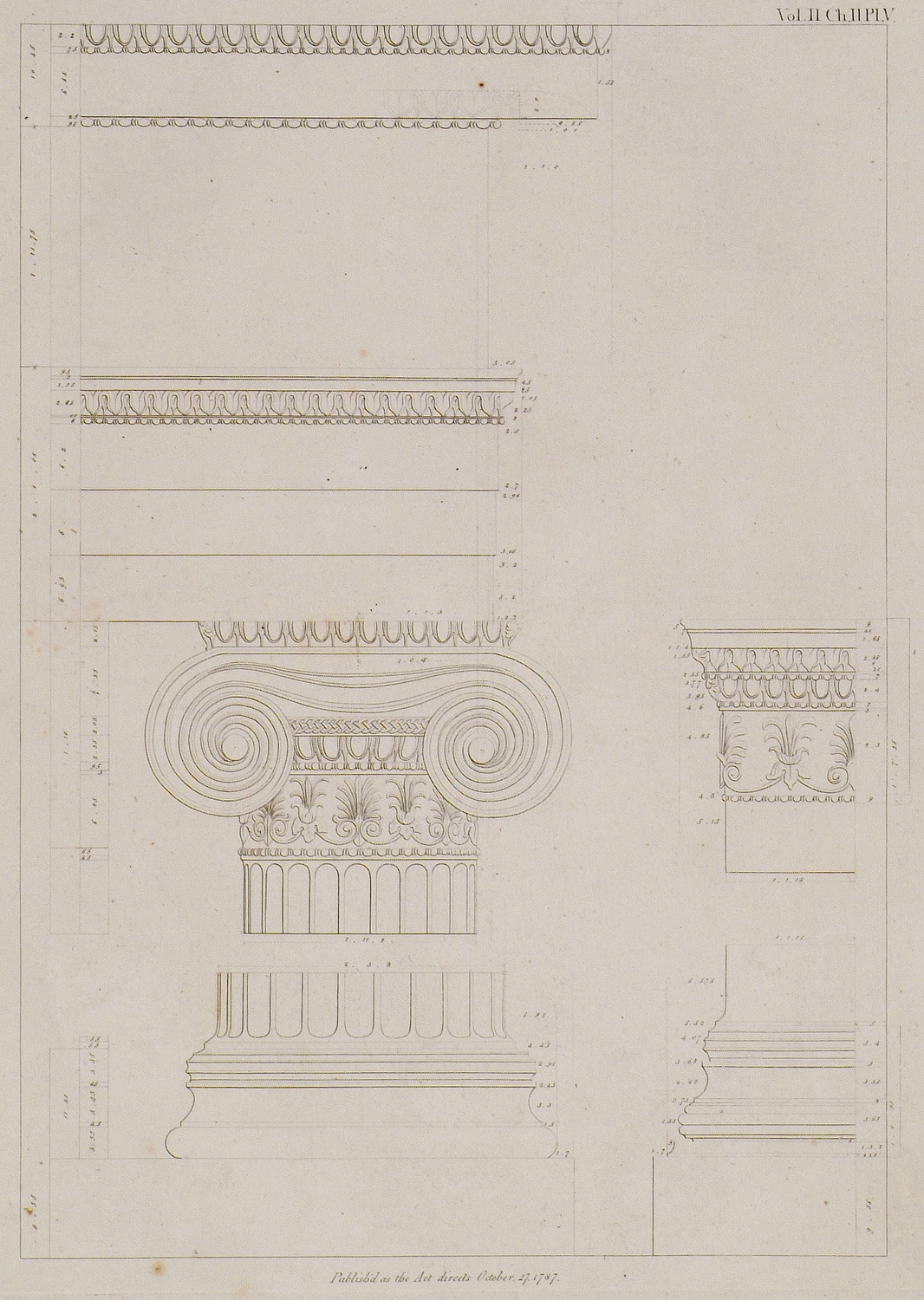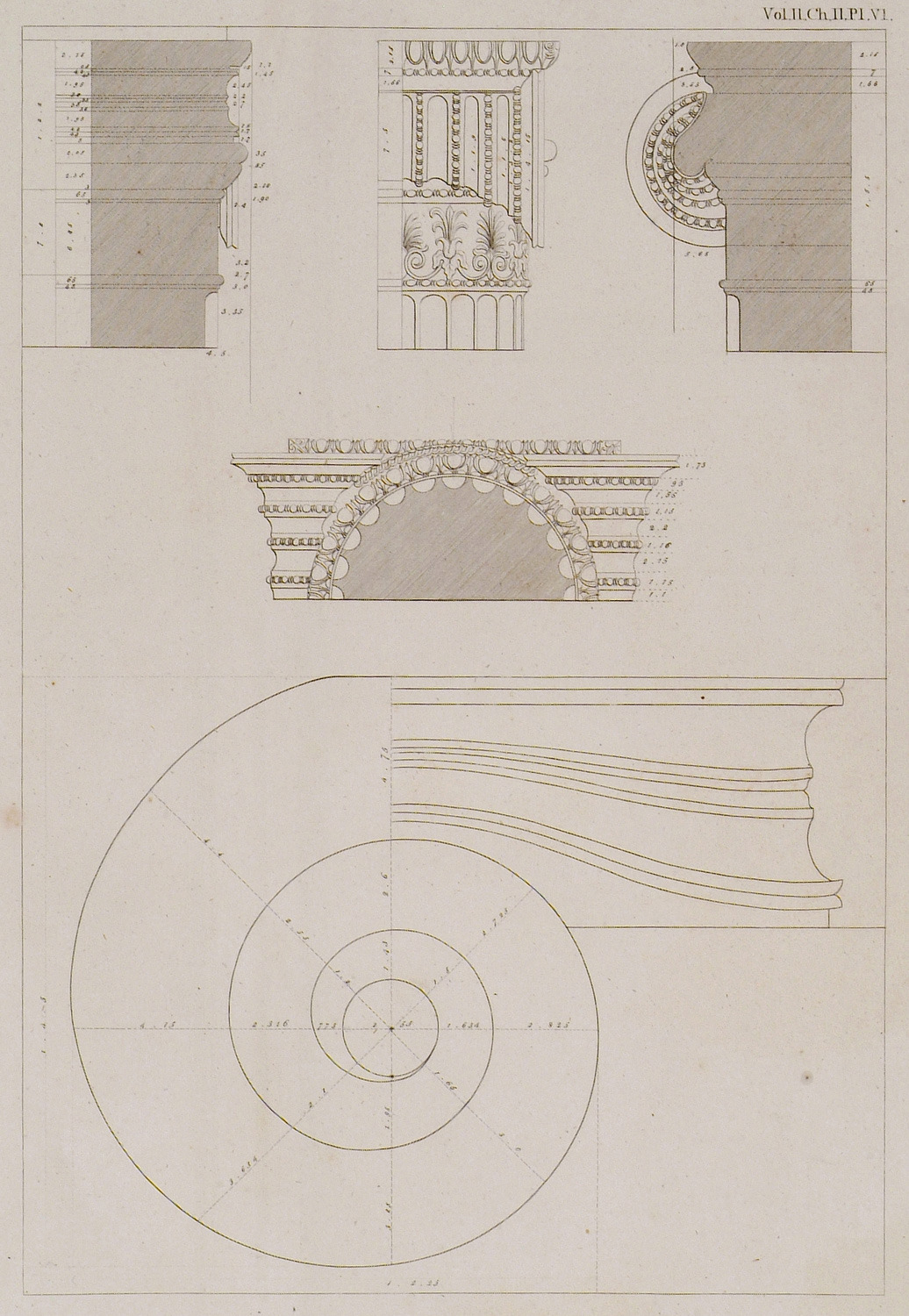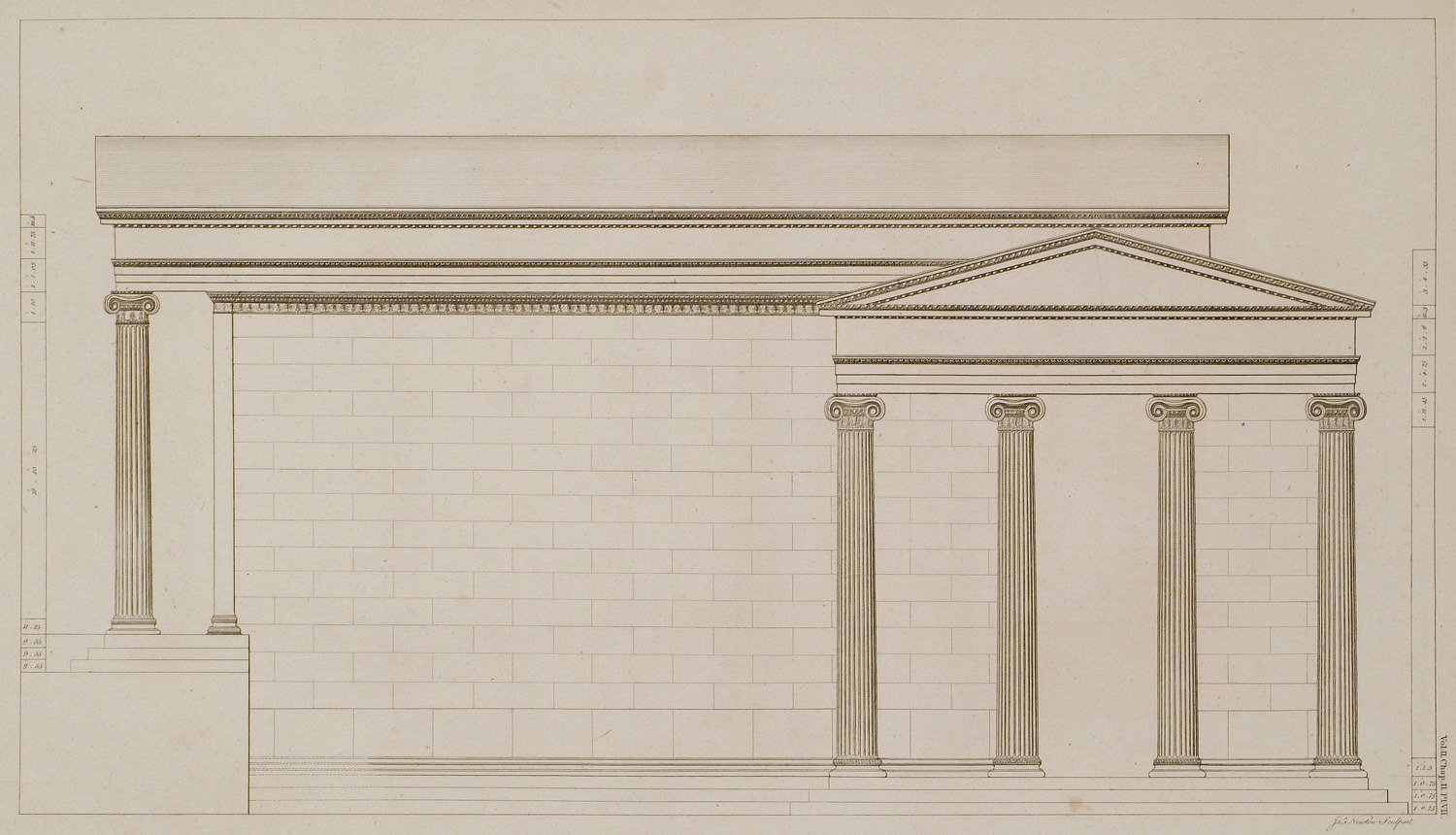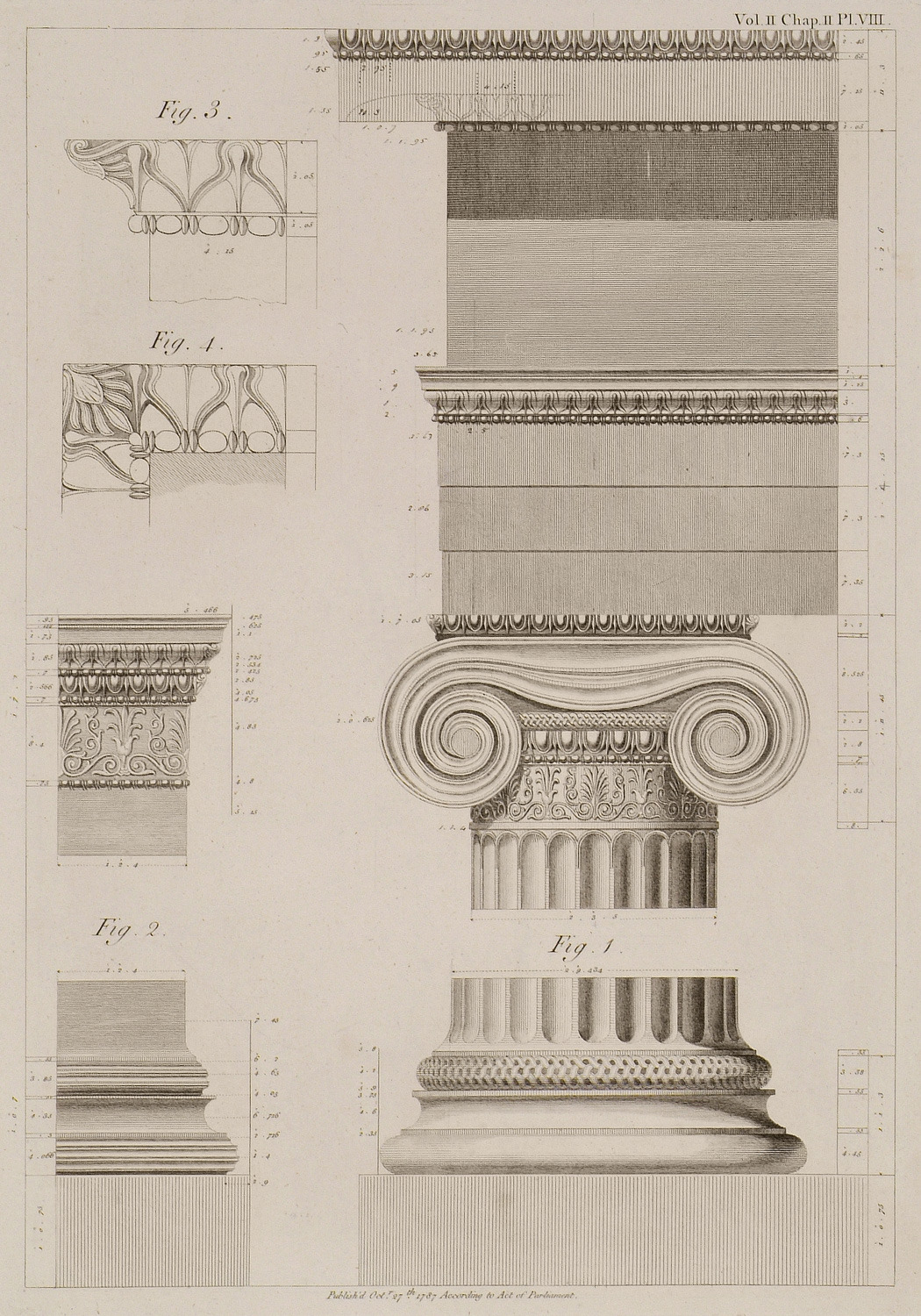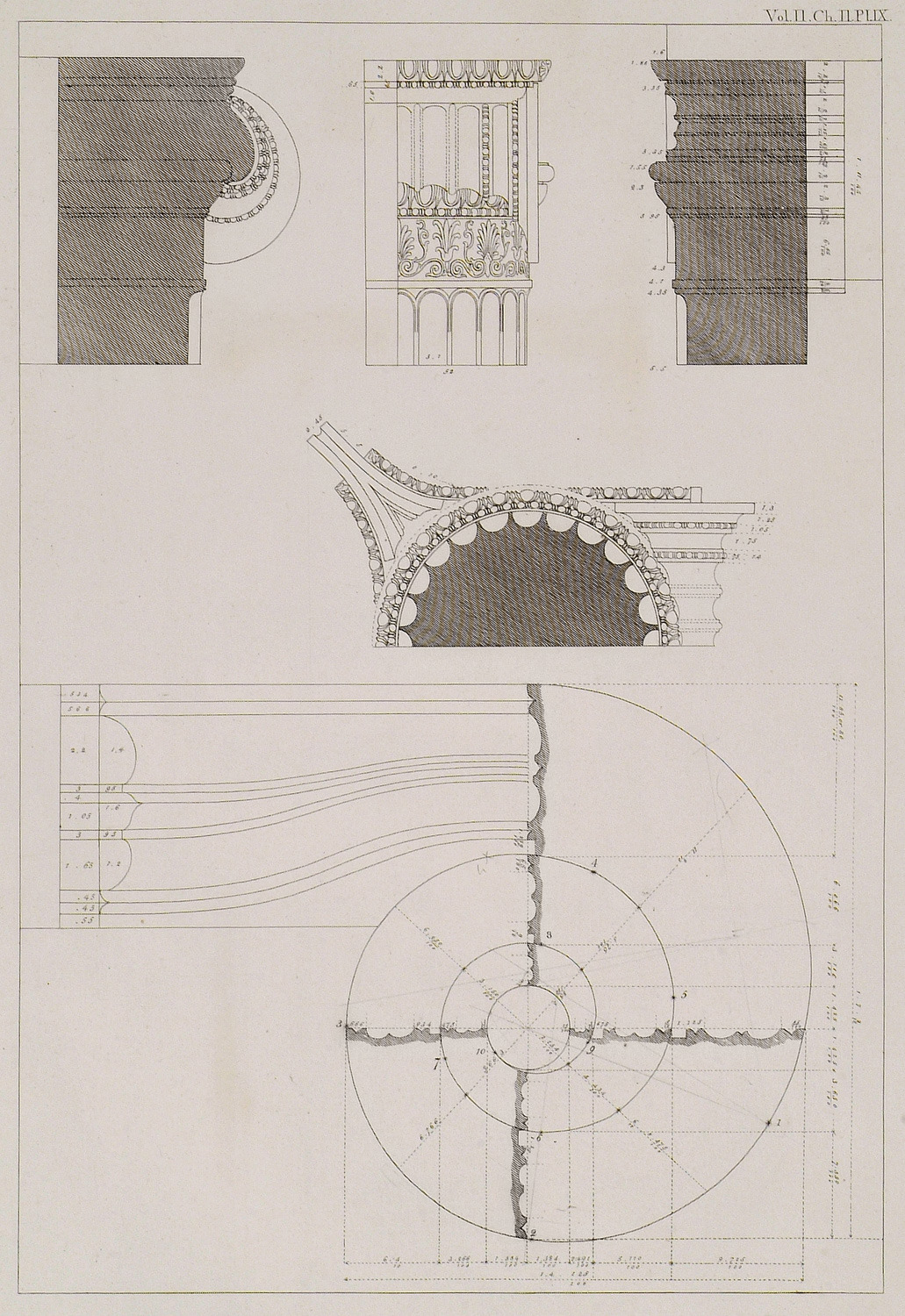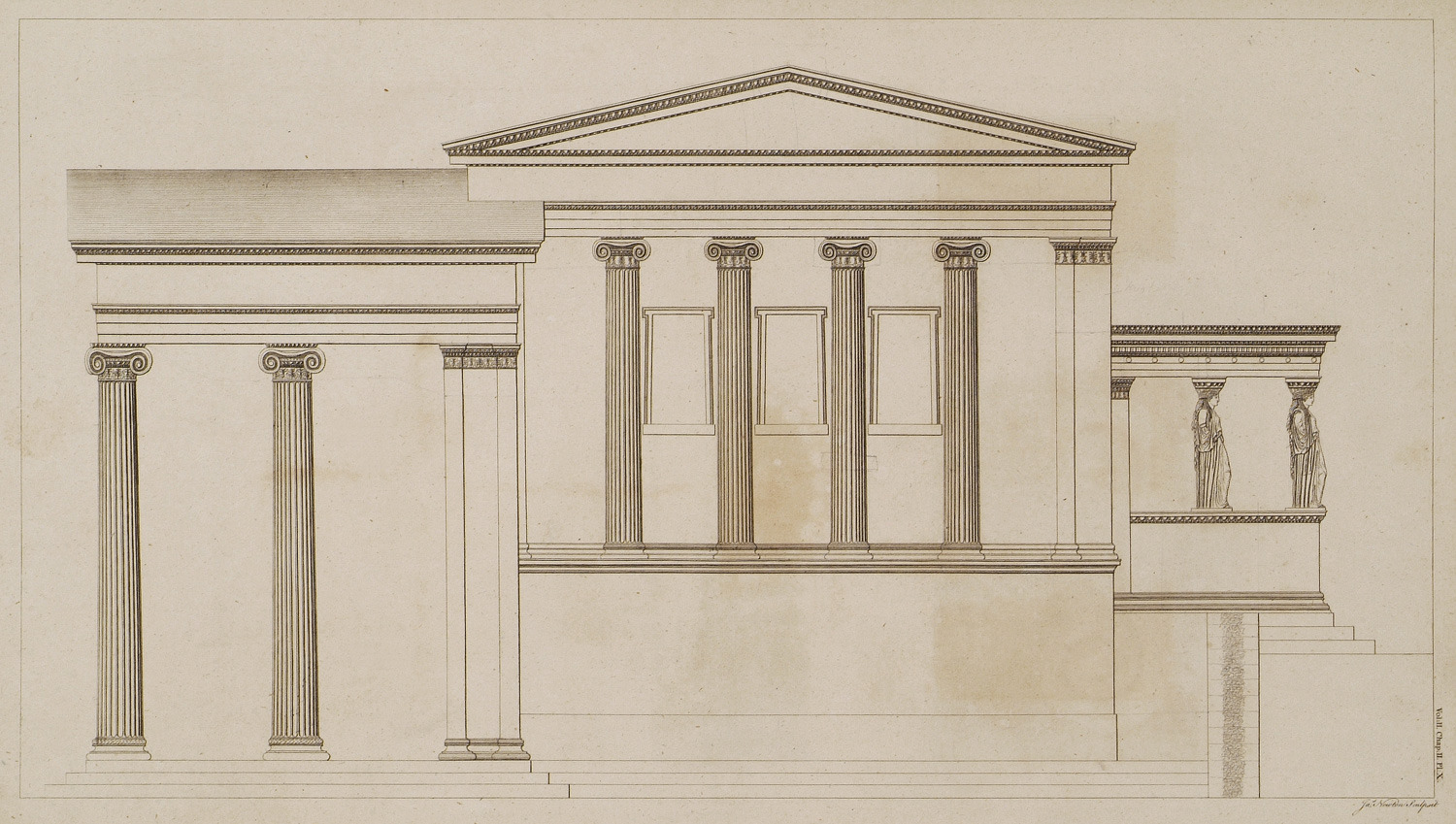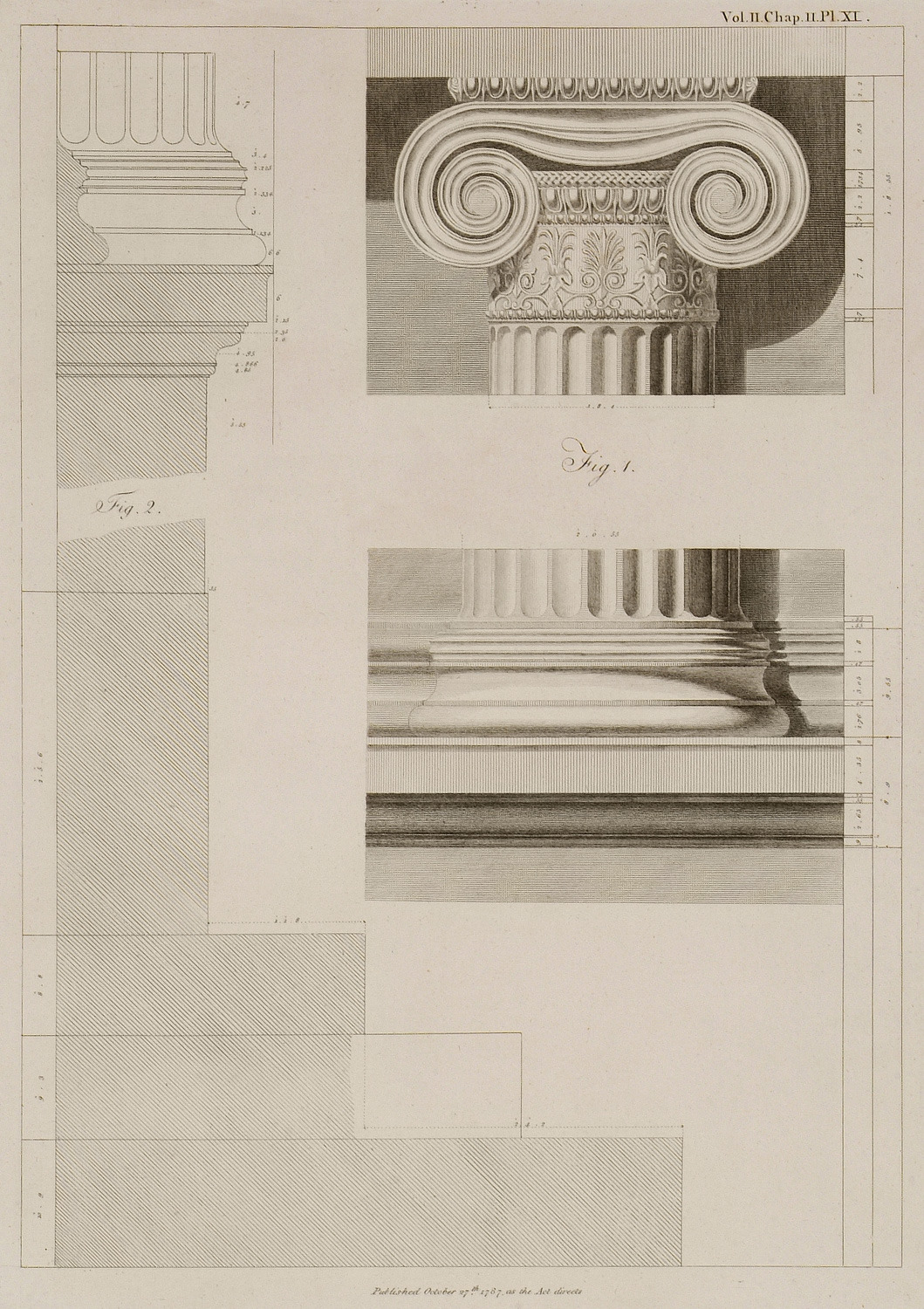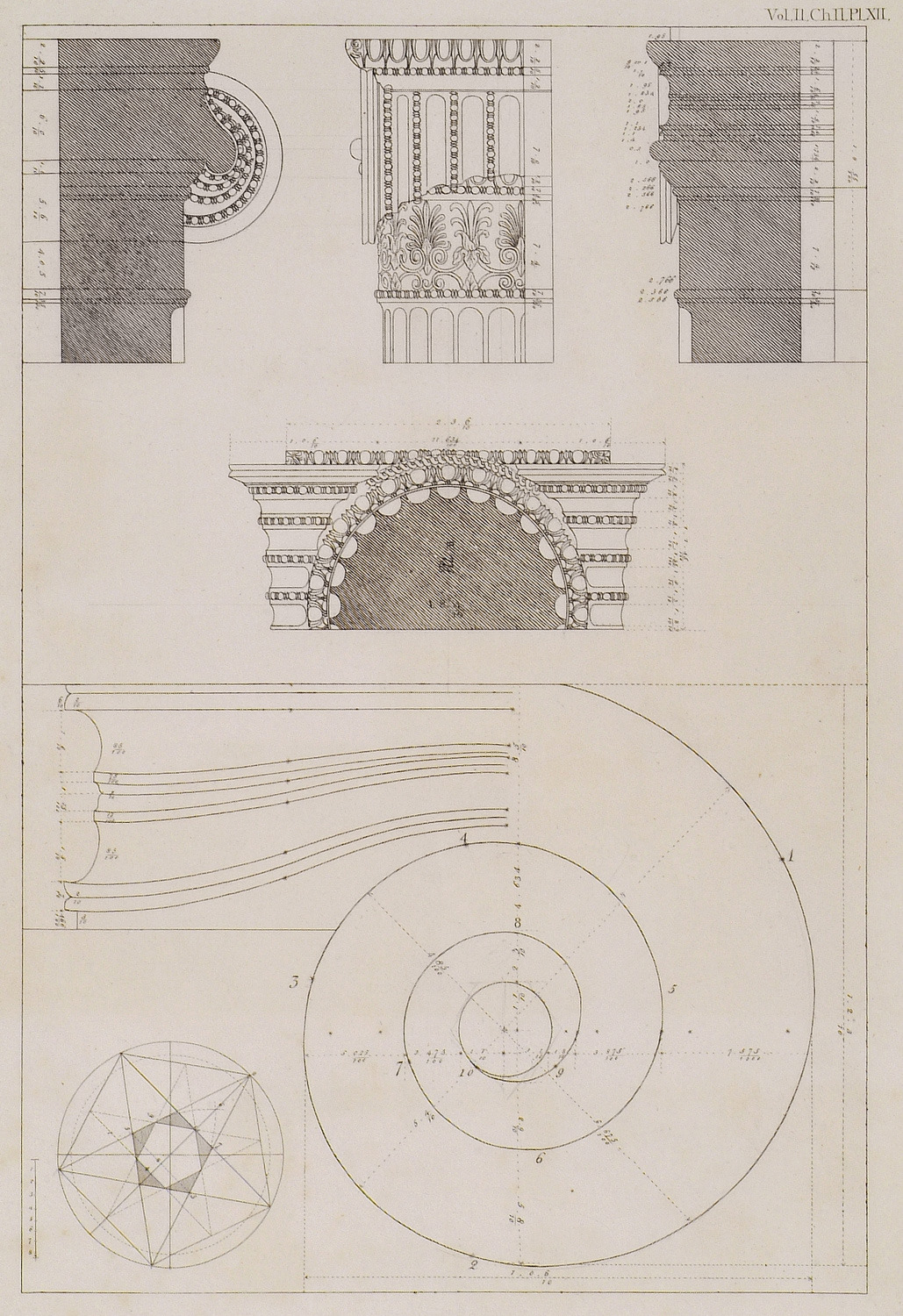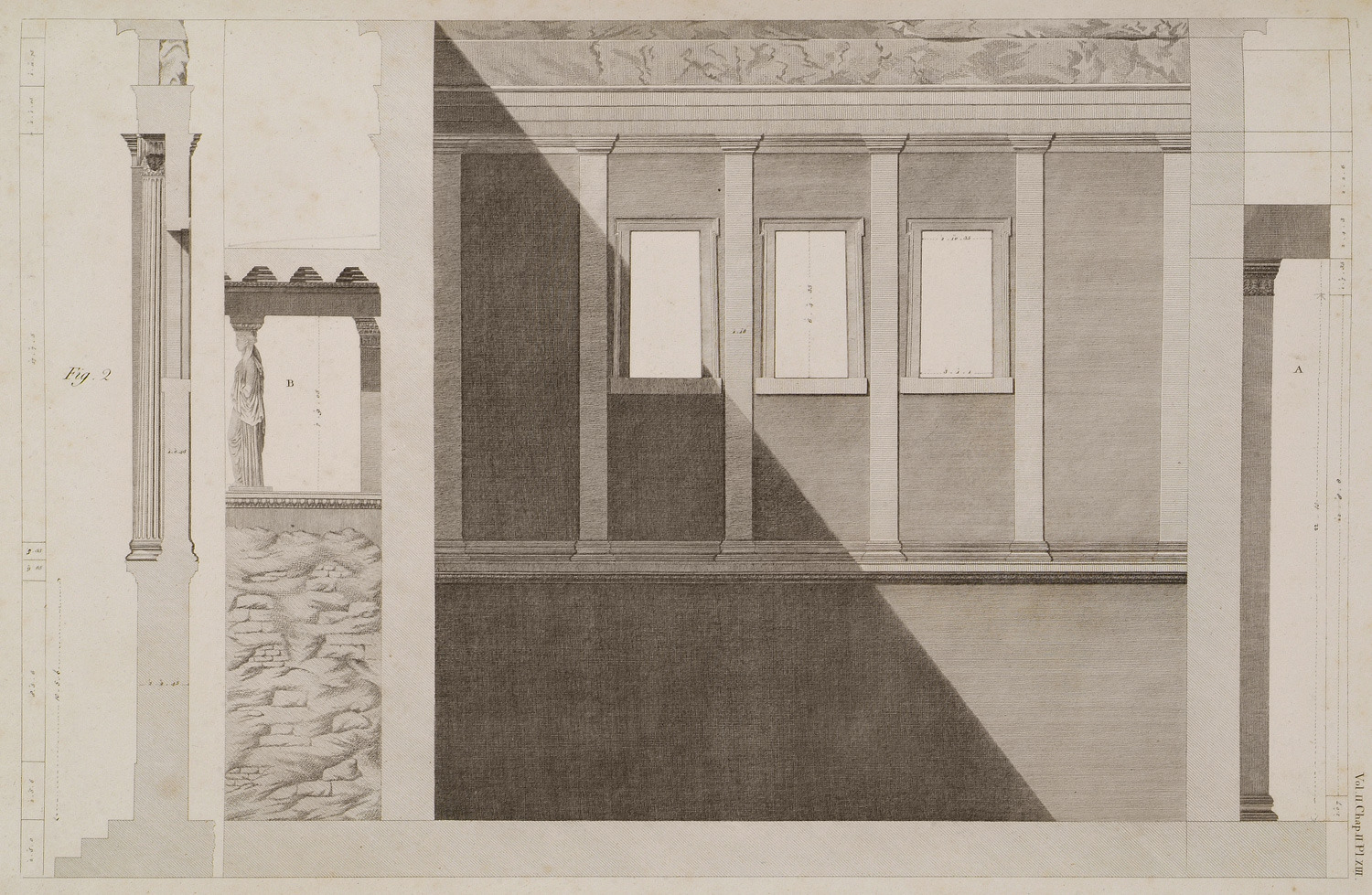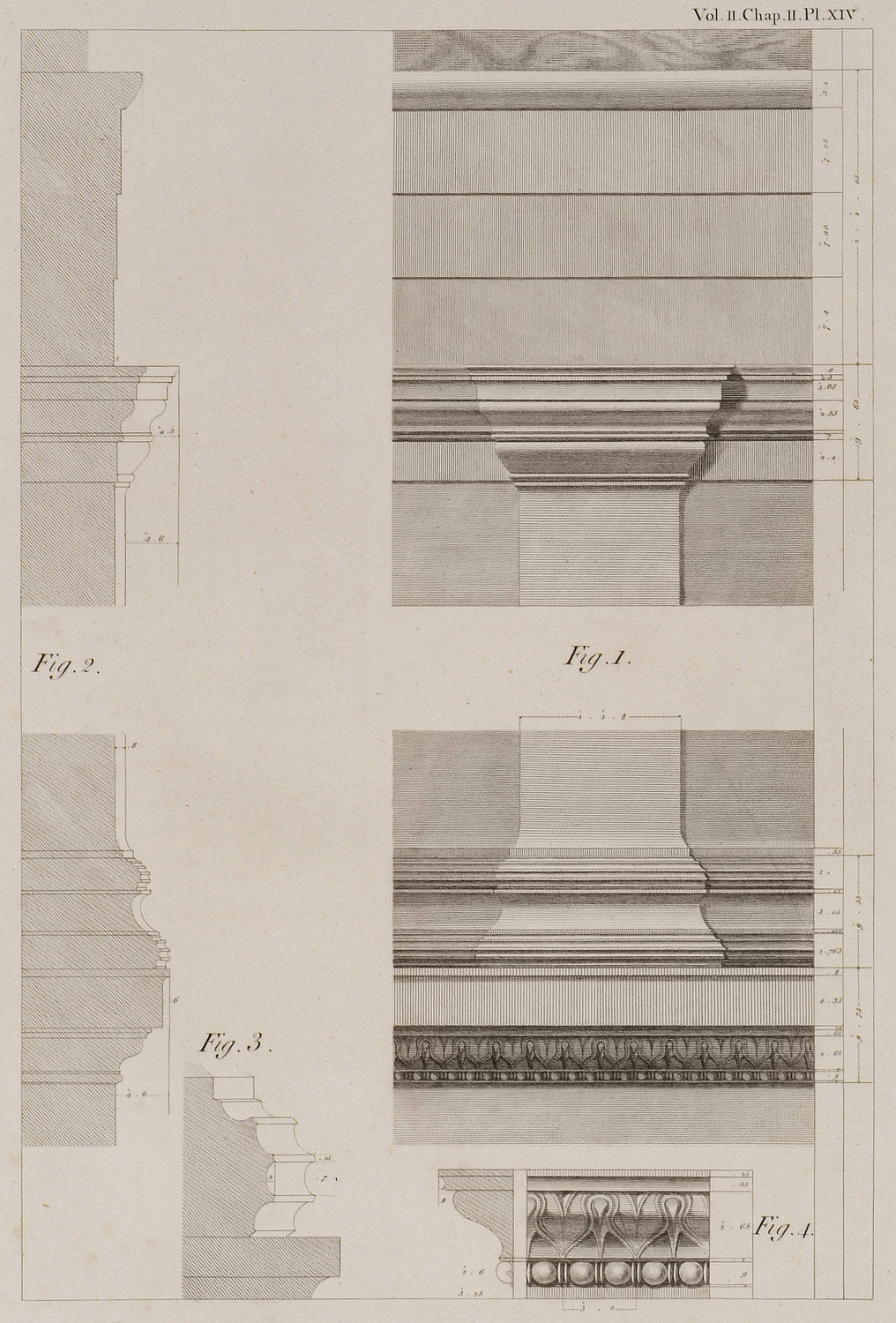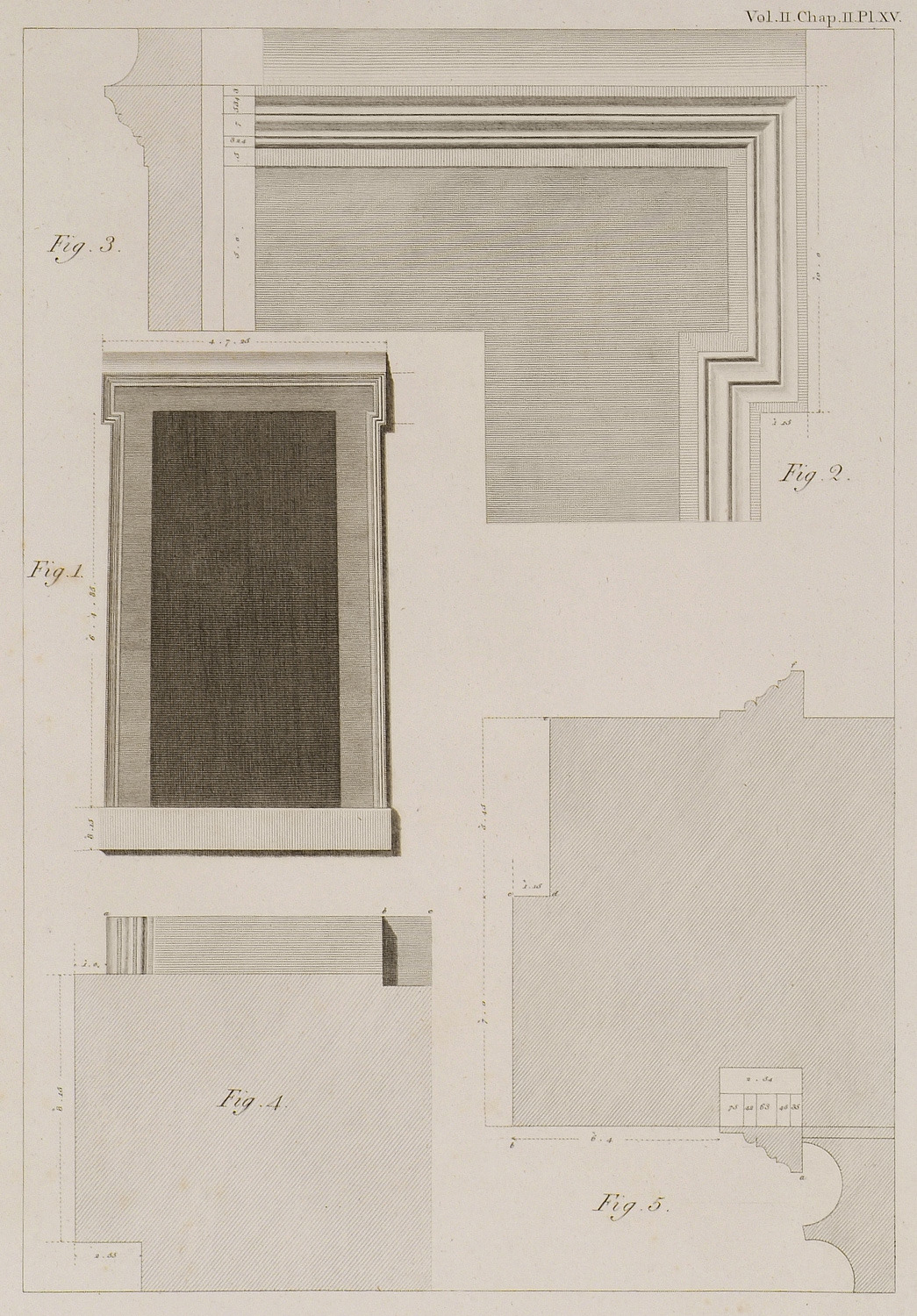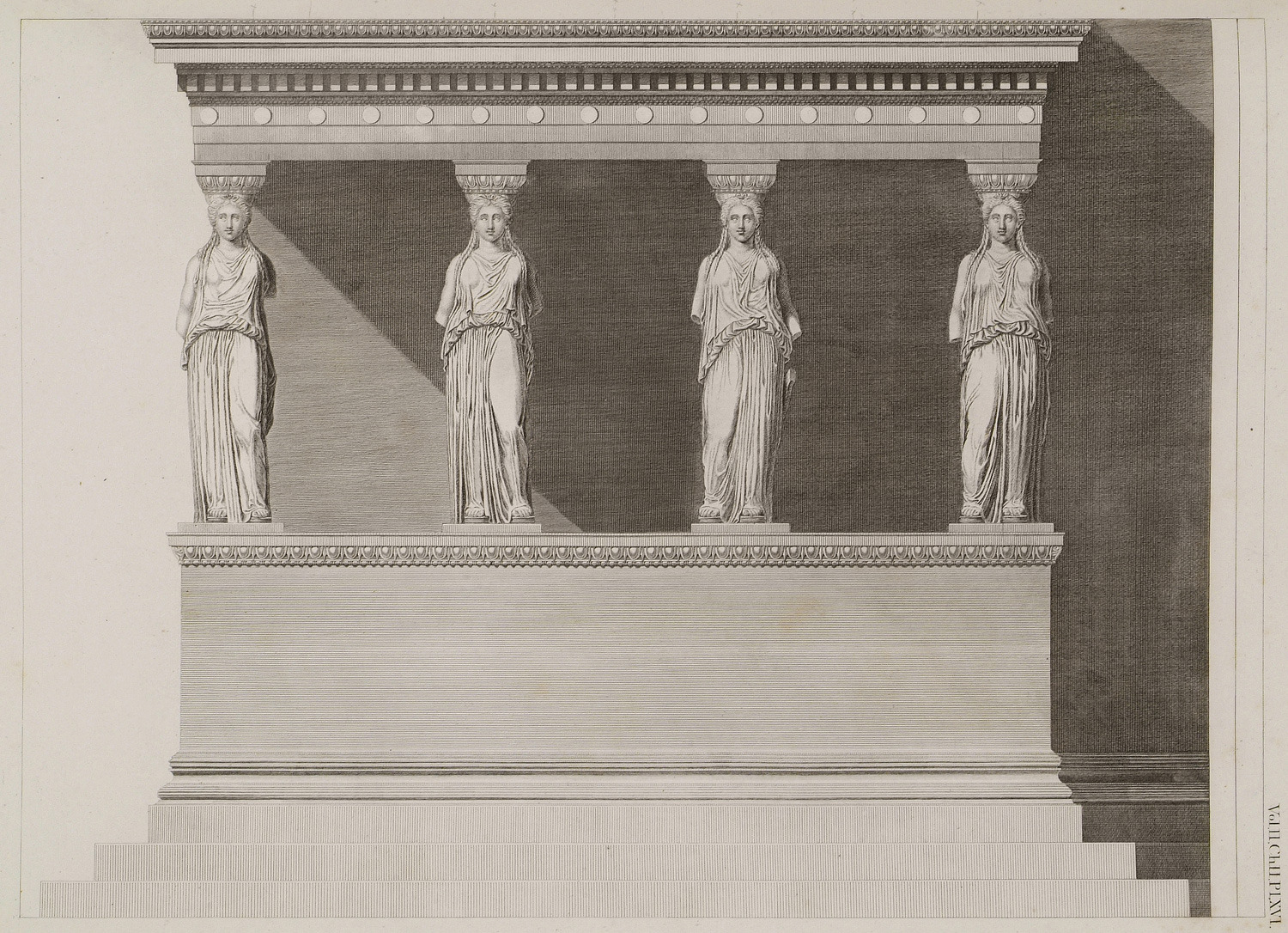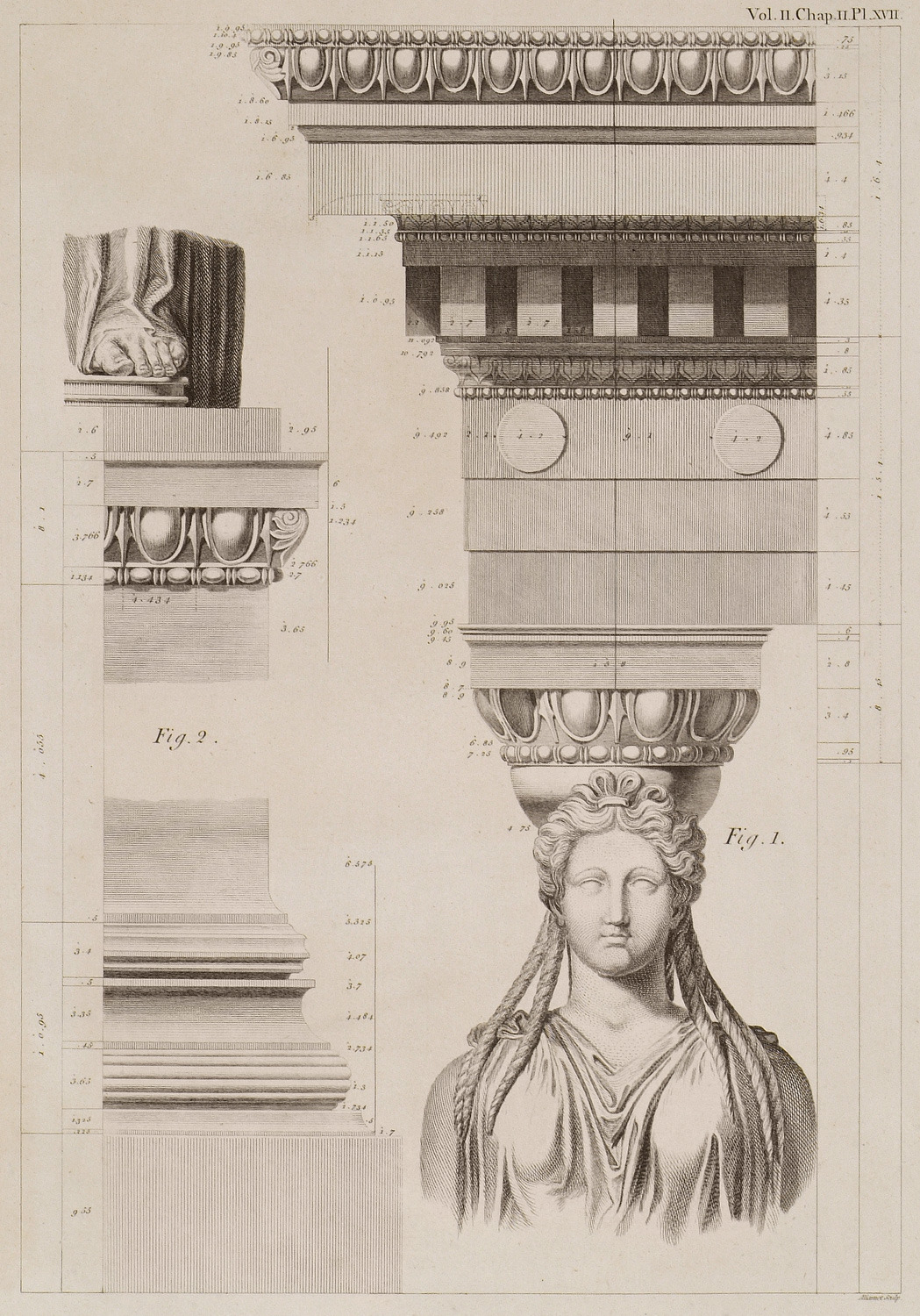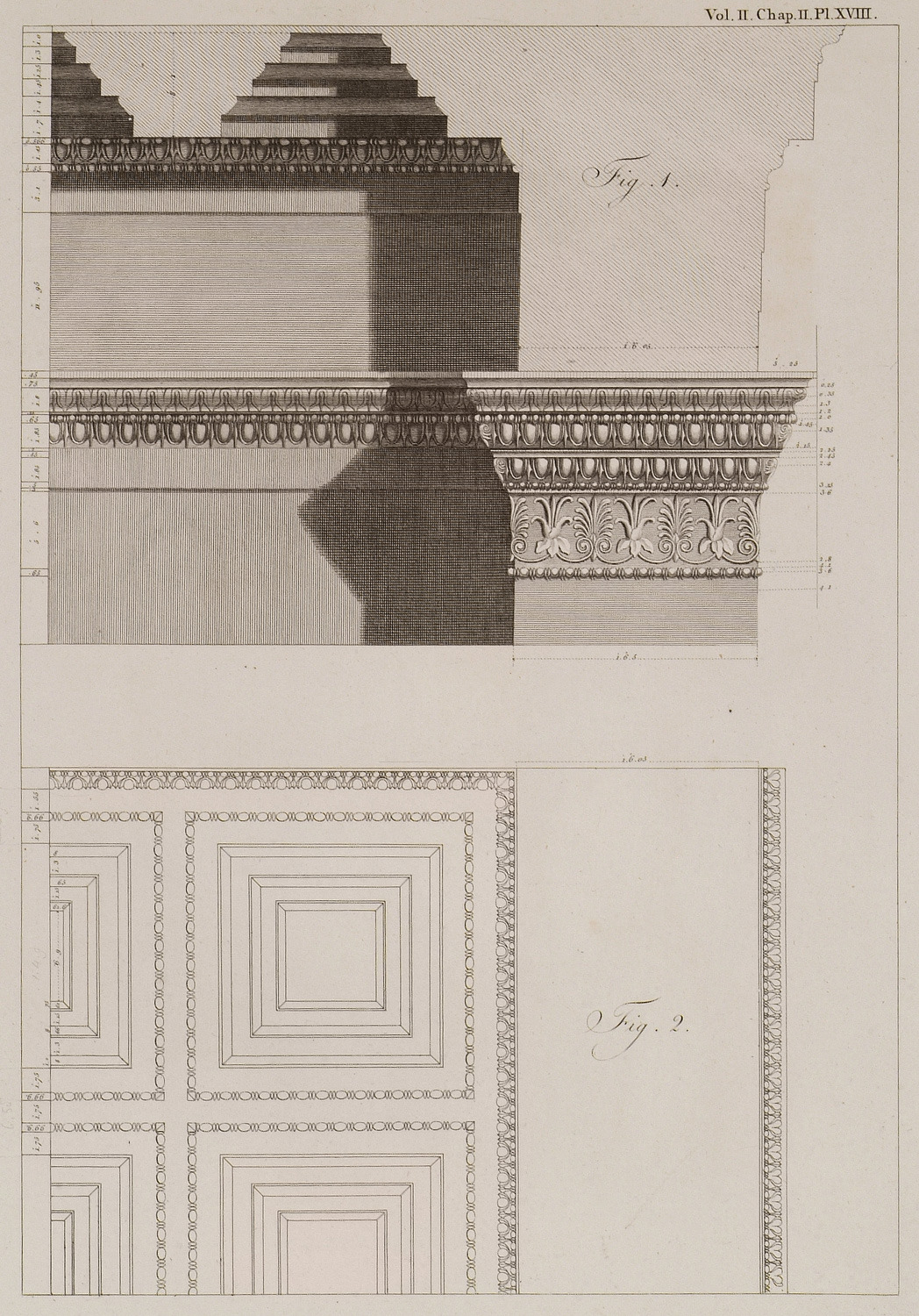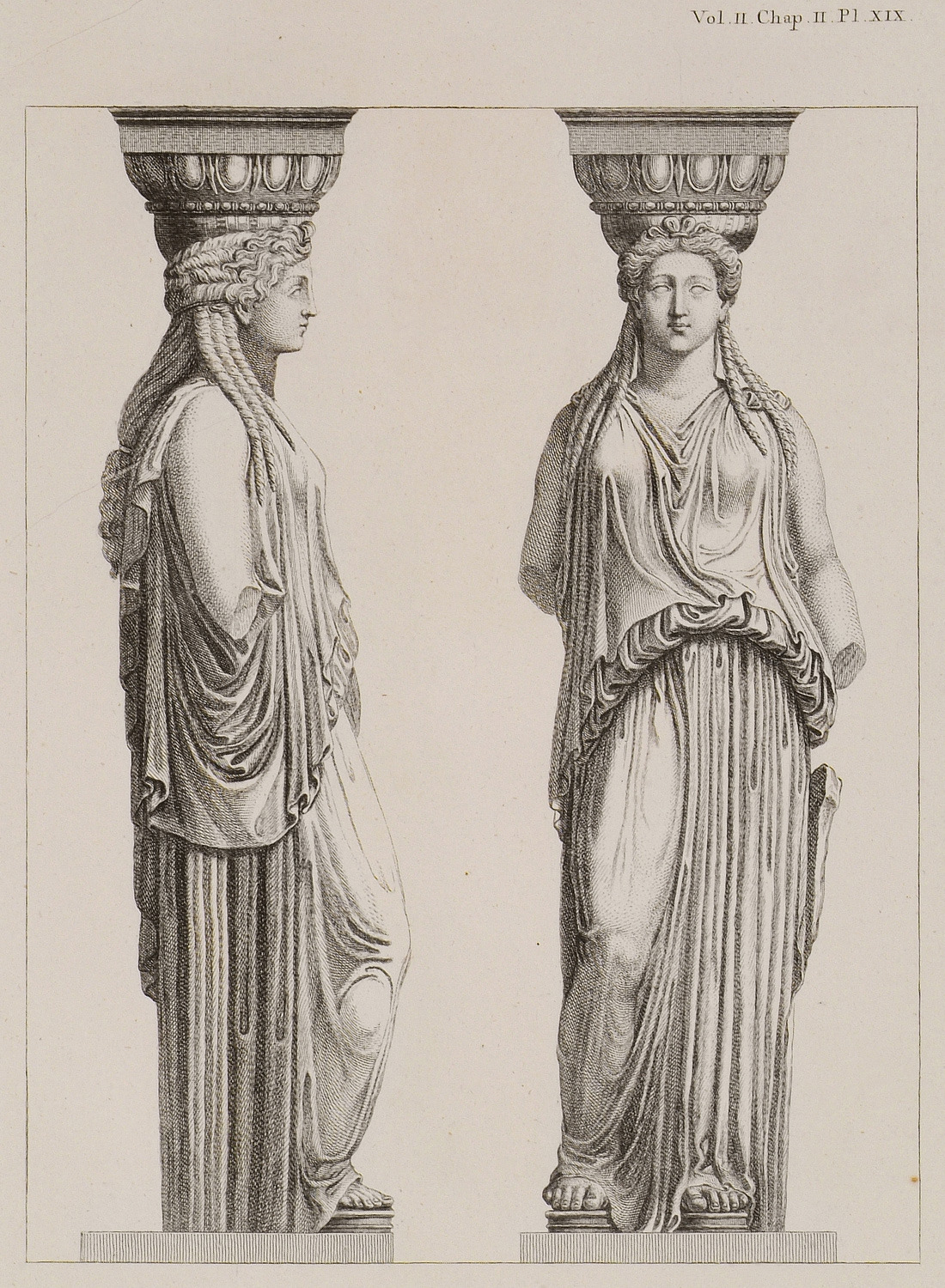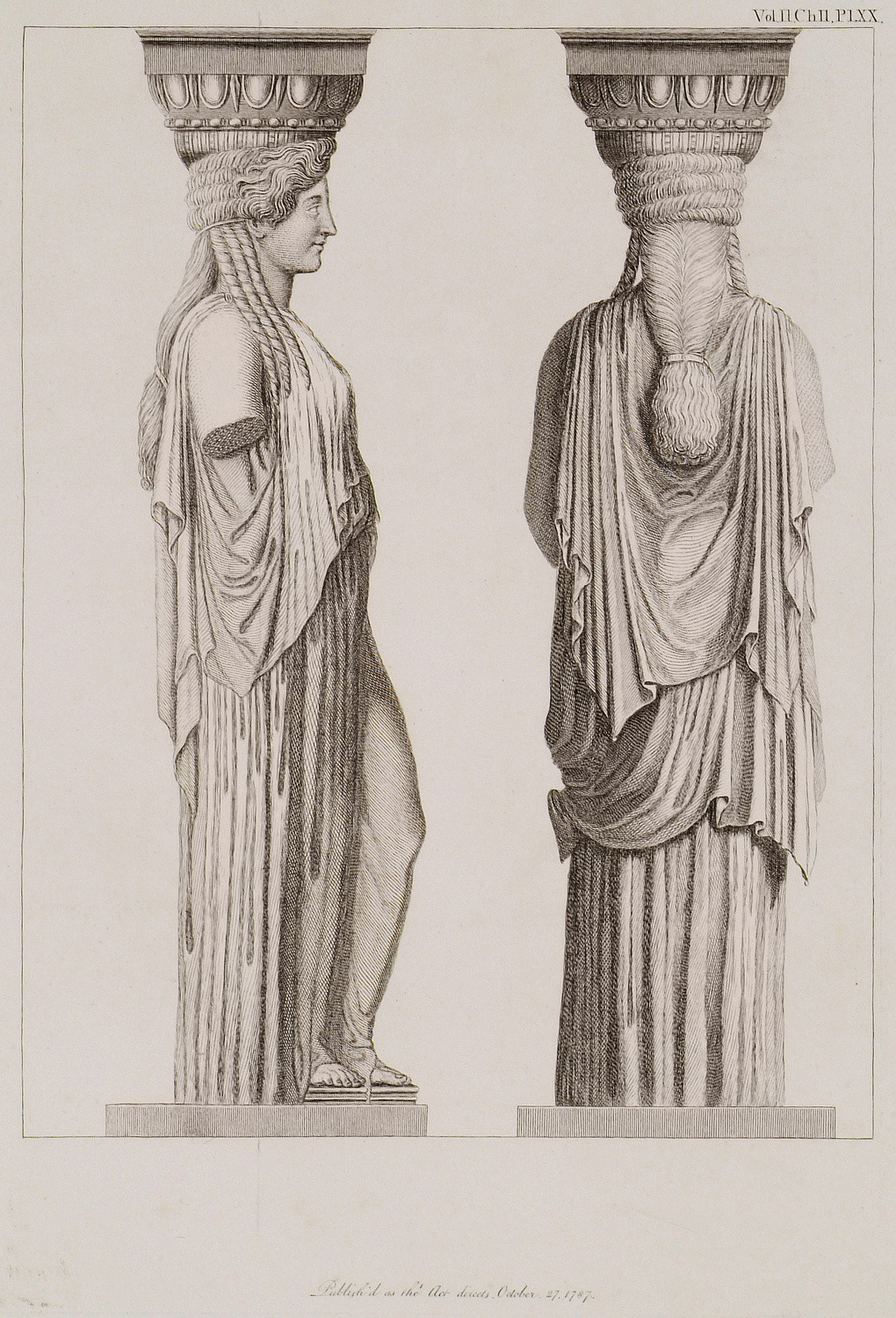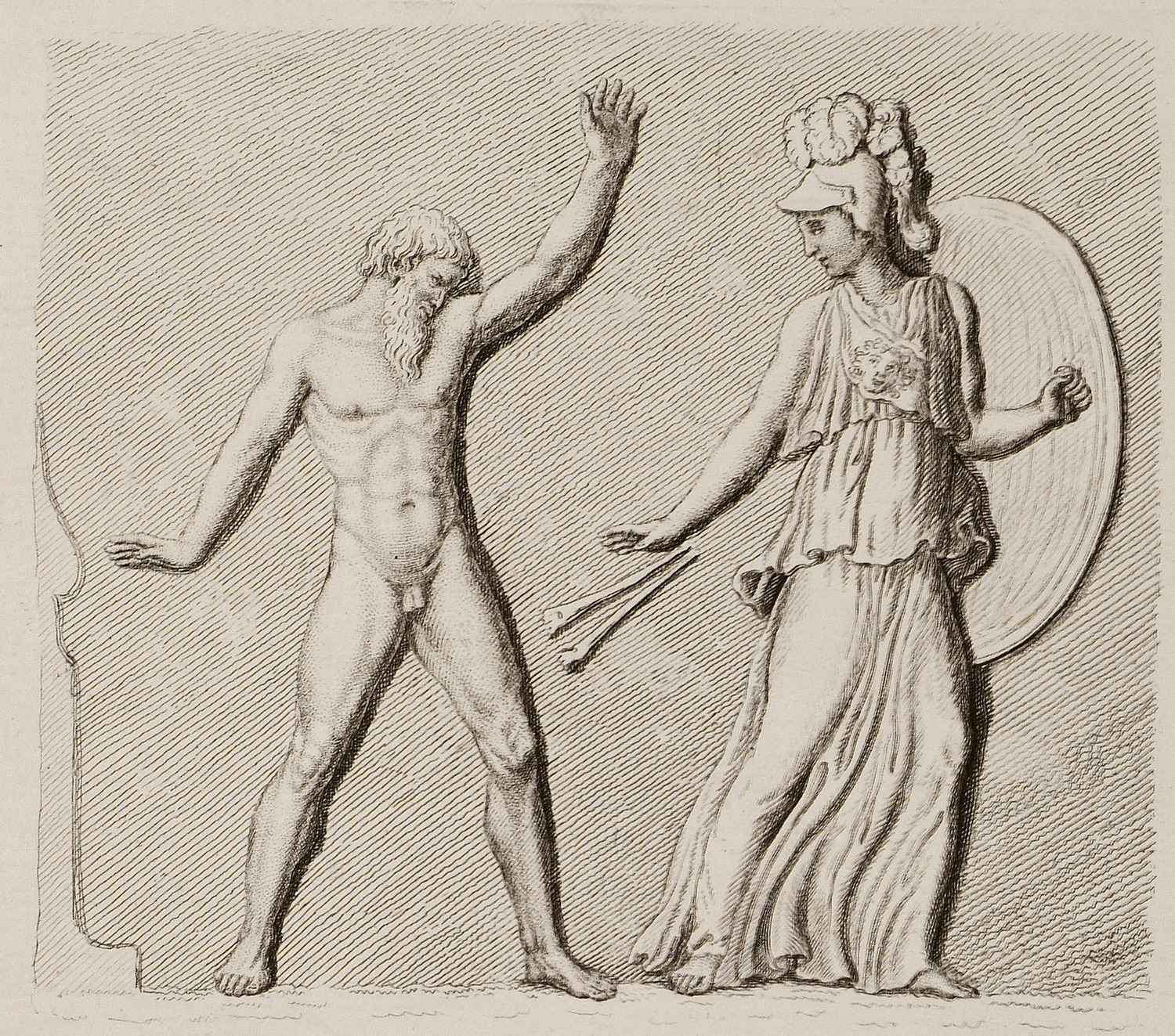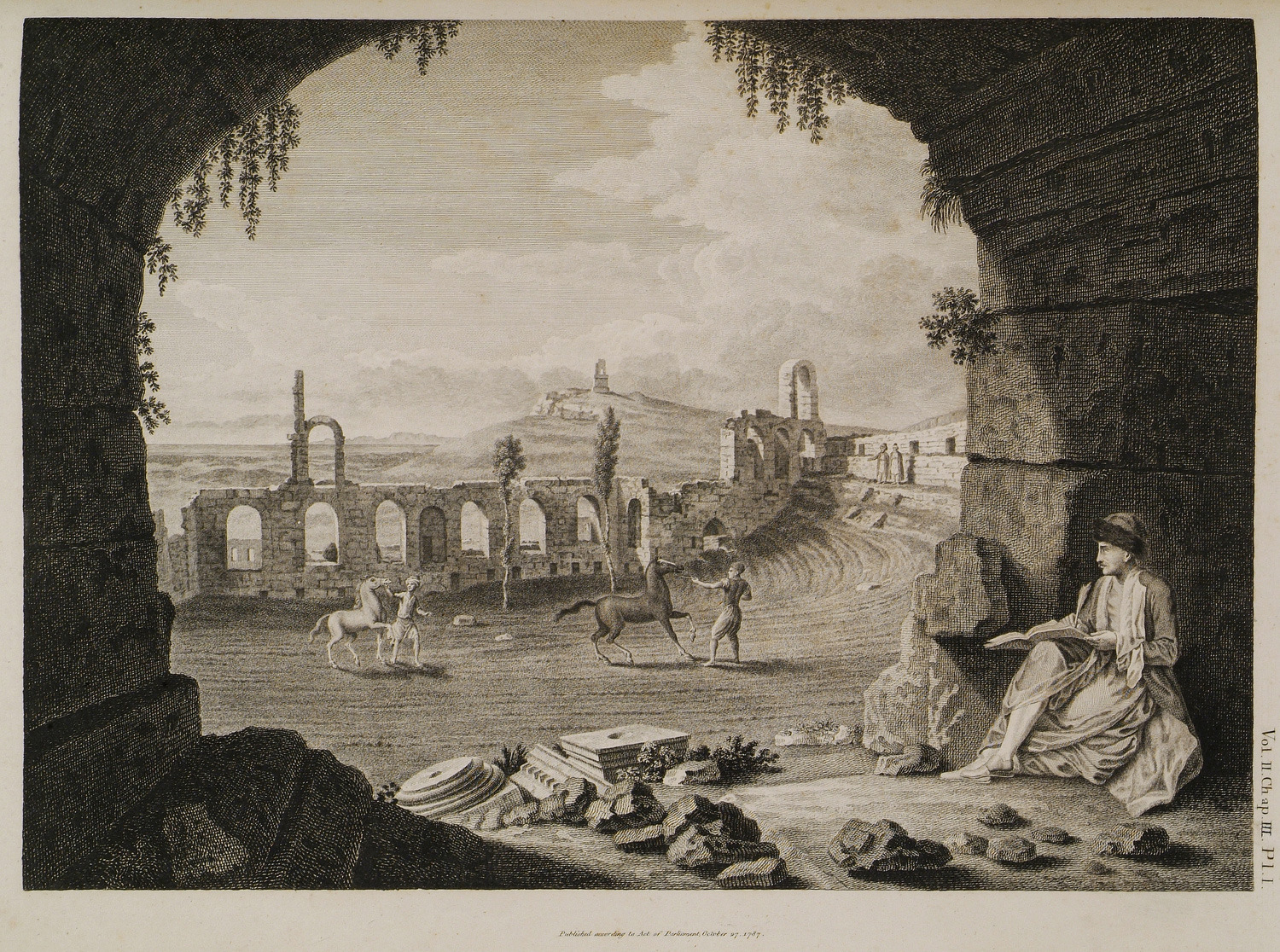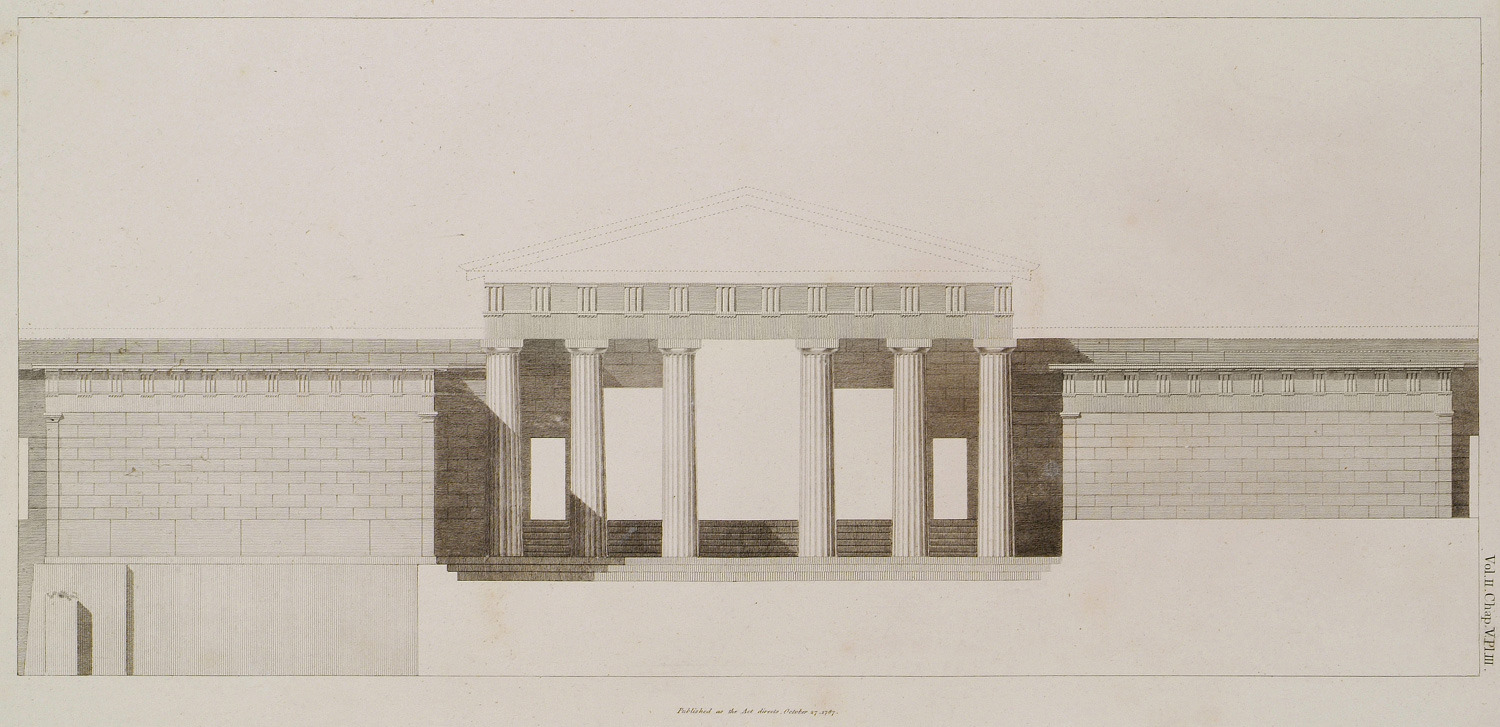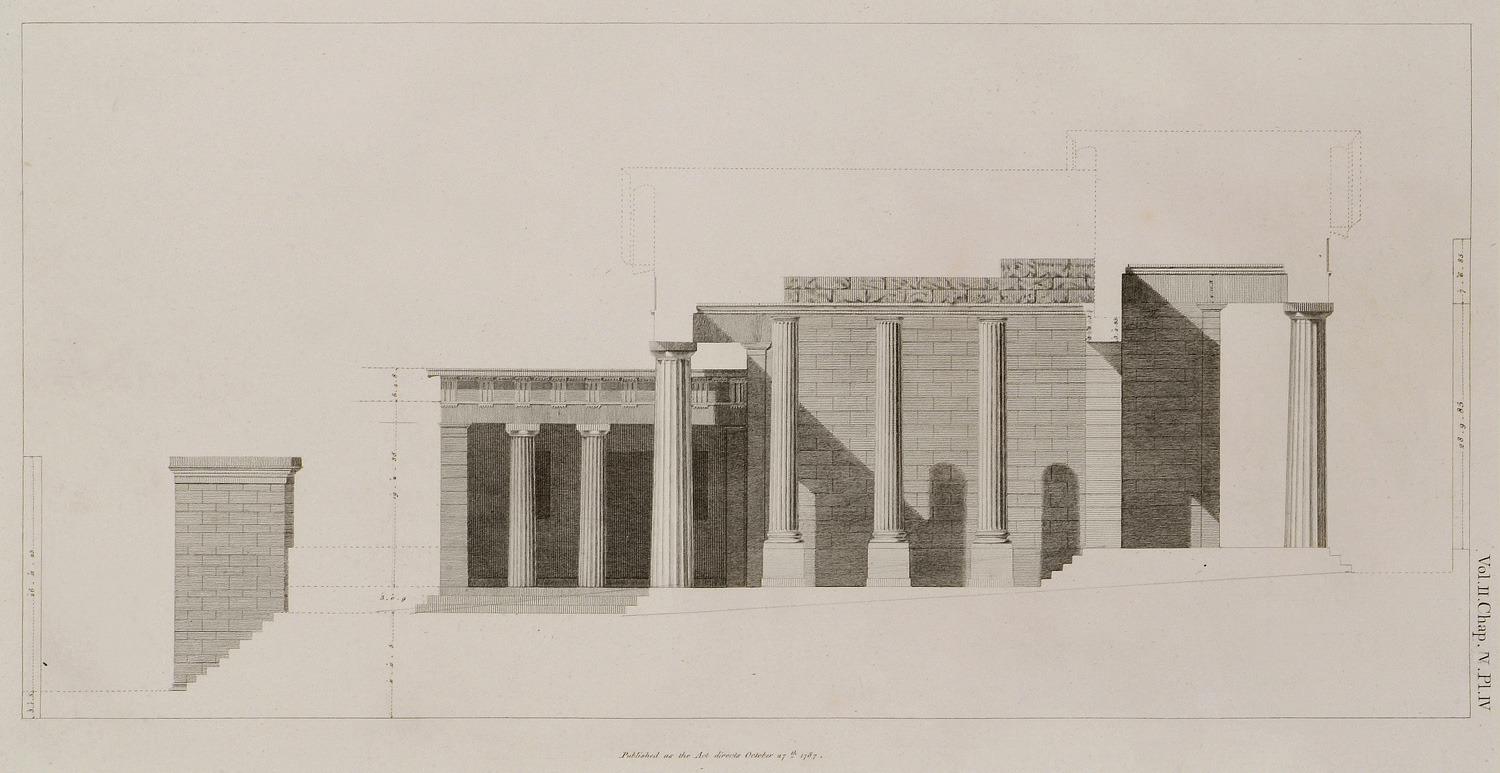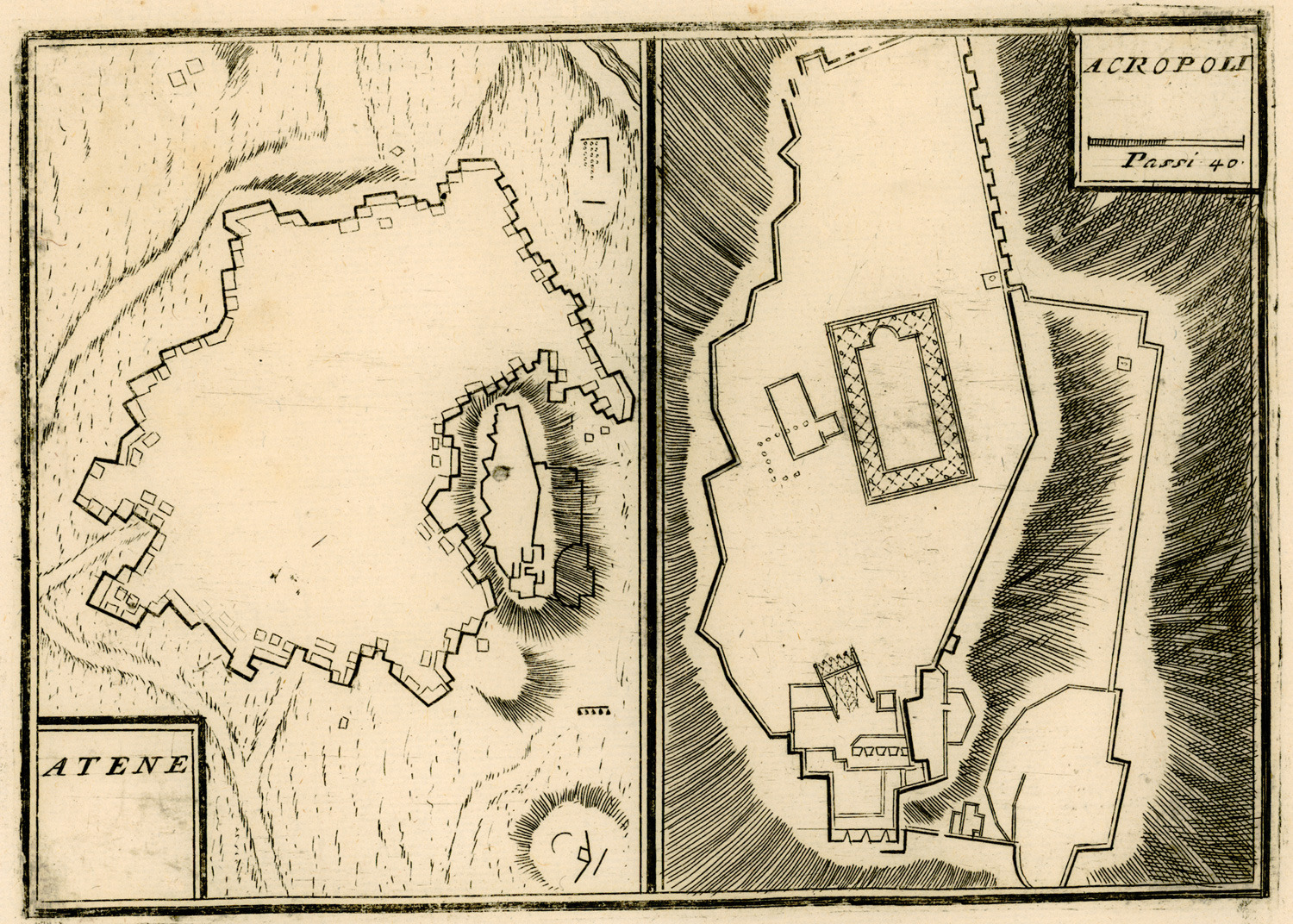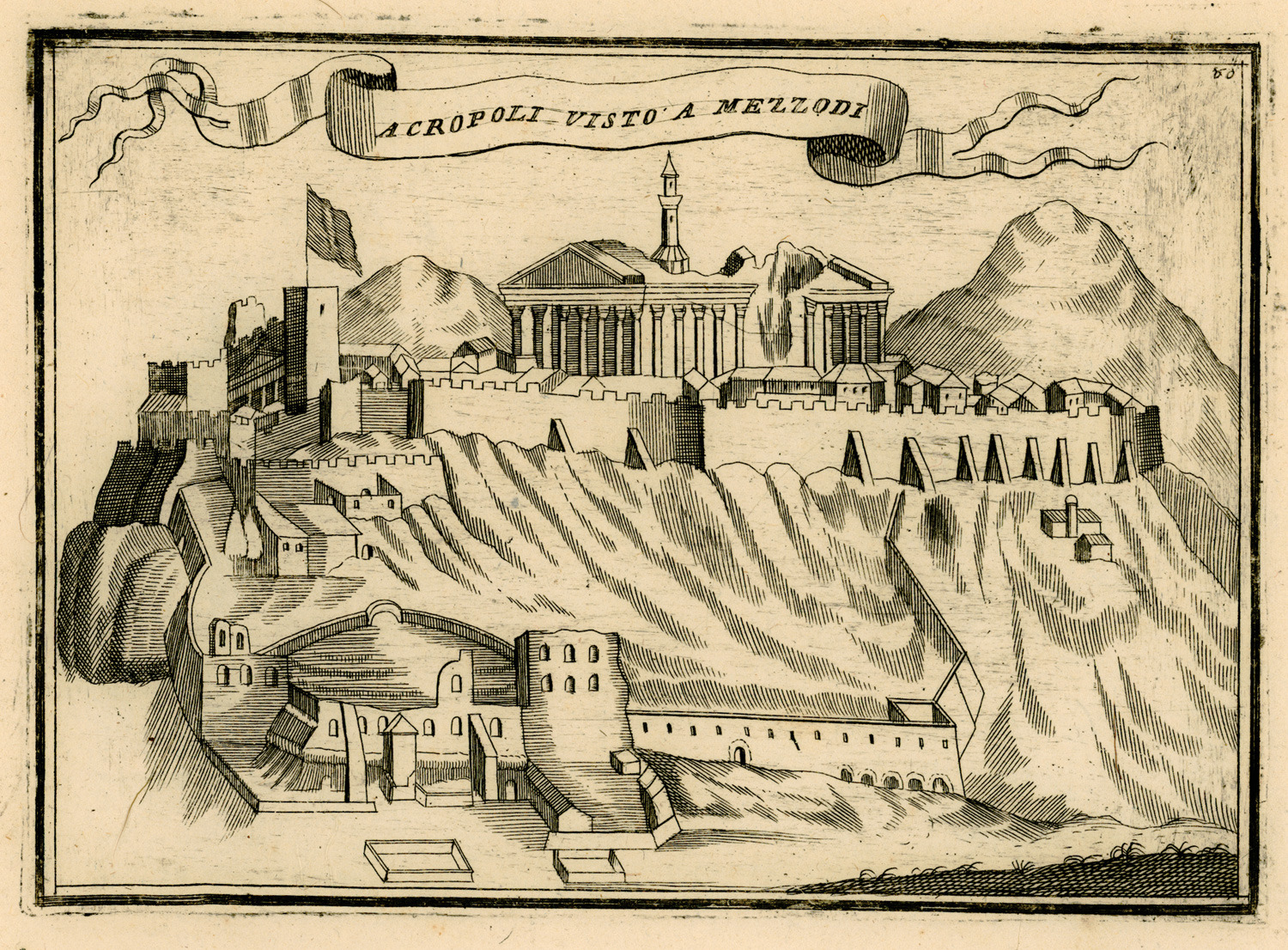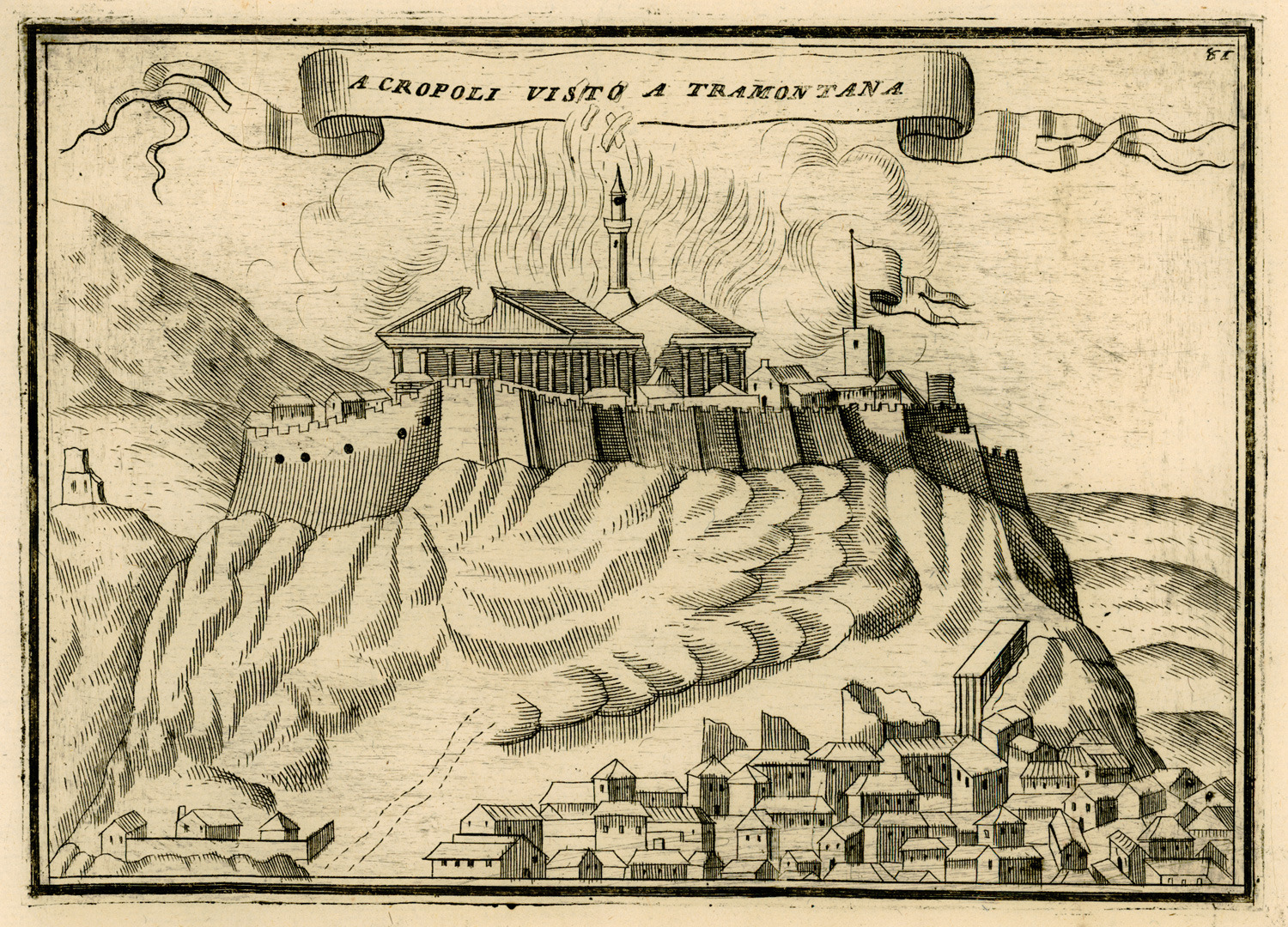Acropolis of Athens (497 Subjects)
The Parthenon: All the remaining pieces of this Freeze on a smaller scale, brought together in one view, and ranged in the order in which they originally stood. A. A. the west end, B. B. the north side, C. C. the east end, D. D. the south side.
Coins of Athens. The sarcophagus of Boutos, priest of Athena and Poseidon, discovered in Erechtheion. Altar of Demeter and Persephone dedicated by Phavios, torch-bearer at the Eleusinian mysteries.
Northeast view of the Erechtheion.
View of the Erechtheion. Workmen excavating to reveal the base of the prostasis underneath the Caryatids. Ottoman official Dizdar Aǧa is leaning on his son-in-law's shoulder while two other Ottomans are supervising the excavations in order to keep him informed and to ensure that the British are not carrying away the archaeological findings. On the foreground a man, probably James Stuart, drawing the monument.
Plan of the Erechtheion.
Erechtheion: The elevation of the Portico.
The Base, Capital and Entablature of the Erechtheum, with the Capital and Base of the Antae of the Portico.
Erechtheion: The plan reversed, and Sections of the Capital.
Erechtheion: Elevation of the north side.
Erechtheion: Fig. 1. Capital, Base, and Entablature of the Portico. Fig. 2. The Capital and Base of the Antae. Fig. 3. Profile of the moulding under the Corona, with the ornament carved on it. Fig. 4. The same viewed from below, to shew the effect of the flower on the Angle.
Erechtheion: The plan reversed, and the necessary sections of the capitals.
Erechtheion: The elevation of the western front.
Erechtheion: Fig. 1. The capital and base of the columns on the western front, with the mouldings of the basement on which those columns stand. Fig. 2. A section of the basement, &c.
Erechtheion: The plan reversed, and sections of the capital.
The Erechtheion: A section through the vestibule or pronaus; showing the internal face of the western front of the building. 2. A section through the wall of the western front.
The Erechtheion: Fig. 1. The capital and base, &c. of the pilasters of the preceding plate. Fig. 2. A section, showing the profile and projection of the pilasters. Fig. 3. A section of the lower torus of the base on a larger scale. Fig. 4. The ornaments on the mouldings of the basement.
The Erechtheion: Fig. 1. The general form of the window. Fig. 2. One of the knees. Fig. 3. The profile of the architrave and its mouldings. Fig. 4. A perpendicular section through the window-stool, showing the depth of the jamb (a.b.) before the reveel takes place; b. c. the reveel. Fig. 5. A horizontal section through the wall.
The Erechtheion: The elevation of the front adorned with Caryatides.
The Erechtheion: Fig. 1. The head of one of the Caryatides, with the mouldings of the capital and entablature on a longer scale. Fig. 2. The mouldings of the basement.
The Erechtheion: The capital of one of the antae, with a plan and section of the soffit, or ceiling.
The Erechtheion: One of the Caryatides viewed in Front and in Profile.
The Erechtheion: View of the back and of the profile of another of the Caryatides.
Relief showing Dionysiac scene, from the Odeon of Herodes Atticus, Athens, which the British Ambassador at Athens, Nikolaos Logothetis took into his residence.
Relief showing Athena and Satyr Marsyas, possibly from Myro's sculpture which was kept at the Acropolis and depicted on the obverse of Athenian coins.
View of the Odeon of Herodes Atticus, Athens. The horses of the military commander of Athens grazing at the site of the scene.
The elevation of the Propylaea. The Pinacotheca without wings; and the edifice formerly decorated with paintings.
The section of the Propylae, and the pier on which an inscription in honor of M. Agrippa.
Floor plan of the walls of Athens and of the Acropolis.
The Acropolis from the east.
The Acropolis from the north.


